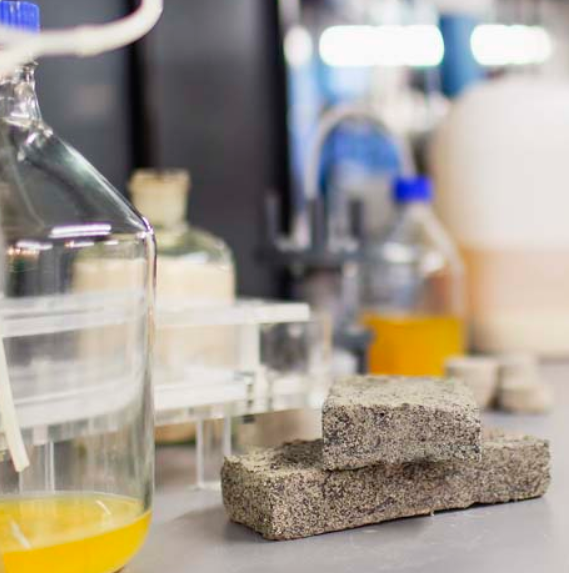Urine bio-bricks tested
 Researchers have grown bio-bricks from human urine.
Researchers have grown bio-bricks from human urine.
Experts around the world are developing bio-bricks to replace traditional bricks, which are kiln-fired at temperatures around 1,400°C and produce vast quantities of carbon dioxide.
The urine-based bio-bricks being developed in South Africa are created through a natural process called microbial carbonate precipitation.
This process is not unlike the way seashells are formed, according to Dr Dyllon Randall, an expert in water quality engineering.
In this case, loose sand is colonised with bacteria that produce urease.
The enzyme urease breaks down the urea in urine while producing calcium carbonate through a complex chemical reaction. This is used to cement the sand into a rectangular building brick.
The strength of the bio-bricks could be changed depending on client needs.
“If a client wanted a brick stronger than a 40 per cent limestone brick, you would allow the bacteria to make the solid stronger by ‘growing’ it for longer,” said Randall.
“The longer you allow the little bacteria to make the cement, the stronger the product is going to be. We can optimise that process.”
In addition, the bio-brick process produces as by-products nitrogen and potassium, which are important components of commercial fertilisers.
Chemically speaking, urine is liquid gold.
It accounts for less than 1 per cent of domestic waste water (by volume) but contains 80 per cent of the nitrogen, 56 per cent of the phosphorus and 63 per cent of the potassium of this waste water.
Some 97 per cent of the phosphorus present in the urine can be converted into calcium phosphate, the key ingredient in fertilisers that underpin commercial farming worldwide. This is significant because the world’s natural phosphate reserves are running dry.








 Print
Print